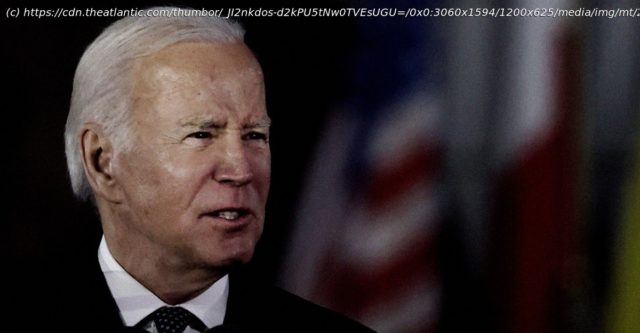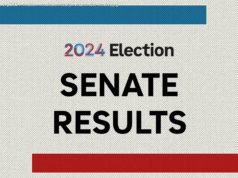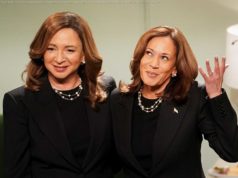The U.S. president’s optimism about Ukraine creates the expectation that everything is possible—and commits him to a Ukrainian victory.
It’s not that often that the president of Russia and the president of the United States give major speeches on the same day, hitting parallel themes and subjects. That it happened today was no accident: Friday is the first anniversary of the Russian invasion of Ukraine, and Vladimir Putin and Joe Biden were both interpreting that war to their audiences. But those audiences were very different. So were the visions of the world on offer.
Putin spoke for two hours, in a large, featureless hall. His target audience was in the room: politicians “elected” according to a rigged system, as well as bureaucrats, security officials, and functionaries—precisely the class of elite Russians who are rumored to be most unhappy with the war. Periodically they got up to applaud. Otherwise they maintained grim, emotionless expressions, and no wonder.
For these people, Putin had a clear message. “Those who have embarked on the path of betrayal of Russia must be held accountable under the law.” He would not, he said, unleash a “witch hunt” against dissenters—which was, of course, a warning that a witch hunt is always possible. Ordinary Russians had no sympathy for those who had lost money because of Western sanctions, he maintained—a hint, of course, that those in the room who had lost money thanks to Western sanctions should not expect to get it back. As for those who had left the country, among them the sons and daughters of those in the room, he dismissed them as “national traitors.”
Point by point, Putin repeated lies that he has told many times before. “We were doing everything possible to solve this problem peacefully.” Ukraine “started the war.






